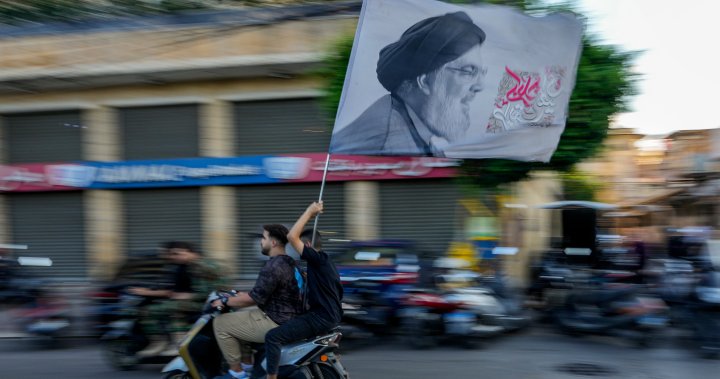Matthew Levitt, an expert on terrorism, has warned that Hezbollah may resort to international terrorism following the killing of its leader, Hassan Nasrallah. The Lebanese militant group has lost many of its commanders in recent Israeli air strikes, leading to concerns about its capabilities for cross-border attacks. With Hezbollah supporters potentially taking matters into their own hands, there is a fear of increased acts of international terrorism. This collapse of the armed group will have ripple effects in countries like Canada, where Hezbollah has been active since the 1990s. Former intelligence officer Andrew Kirsch noted that Hezbollah members worldwide have lost their lines of communication and may be fearful, potentially leading to them taking action independently.
Hezbollah, formed in 1982 in response to Israel’s invasion of Lebanon, has been in conflict with Israel ever since. With the backing of Iran’s Revolutionary Guard Corps, Hezbollah has developed into what the Canadian government describes as one of the most technically capable terrorist groups globally. The group has a global network that enables it to mobilize supporters and conduct attacks around the world. Canadian Hezbollah members have been involved in several attacks, including a wanted man from Vancouver tied to a bus bombing in Bulgaria that killed five Israeli tourists. While Hezbollah has not carried out any attacks in Canada, an operative was caught in 2017 collecting security details about Toronto’s Pearson airport, indicating a potential threat in the country.
Hezbollah has maintained a presence in Canada for years, with the nation serving as a facilitation and fundraising hub for the terror group. Iranian financing supports much of Hezbollah’s activities, but the group also relies on numerous material supporters operating internationally, including in Canada. These individuals often run businesses engaging in legitimate commercial activity, with some of the generated resources being diverted to support Hezbollah’s operations. Moreover, Hezbollah maintains an international network of charities, non-profits, and sympathetic organizations, including those in Canada. The Financial Transactions and Reports Analysis Centre of Canada has identified Hezbollah as a significant concern in terms of financial transactions, with funds often flowing to Lebanon.
Hezbollah’s procurement efforts have been particularly active in Canada, with the group purchasing dual-use items and other equipment through entities in the country. Canadian authorities have investigated instances of Hezbollah cells buying night vision goggles and gear for the group’s purchasing agents in Lebanon. In addition to financial transactions, Hezbollah has used Canada to acquire various tools and resources for its operations. Israel has recently launched an offensive against Hezbollah, targeting the group’s leadership through airstrikes after detonating explosives planted in pagers distributed to members. The killing of Nasrallah has led to concerns about potential retaliation and increased security measures in various regions.
Authorities in Canada, including the Toronto Police Service, are closely monitoring global events and potential threats following Nasrallah’s death. The police force is in communication with community partners and has indicated that they will increase security presence as necessary to ensure public safety. There are heightened concerns about potential threats to Canada’s Jewish community, which has been targeted in attacks over the past year. Kirsch highlighted the need for vigilance and security measures, especially given the ongoing tensions in the Middle East and the anniversary of past attacks. Overall, concerns about Hezbollah’s potential shift towards international terrorism following the loss of its leader have raised alarms within the Canadian security community.


